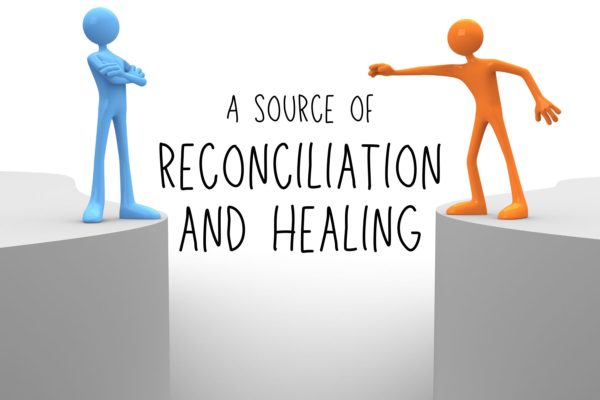Weekly Devotion with Kim Wu
Sometimes, our faith motivates us to do things that come back to us in positive ways almost immediately. We deliver food baskets to those who don’t have enough food in our community, and it feels good to extend a loving hand to those that need it.
Other times, our faith moves us to do things that the human side of us doesn’t want to do.
We’re a deeply divided nation, and we think “our side” is right, and “their side” is wrong. (Insert whatever source of division you want here; they all apply.) And for many of the particularly tense points of division, we demonize the other side.
It’s in our nature to do so. It’s called the Fundamental Attribution Error, and I’ve written about it before. We attribute others’ negative behaviors to their character (or lack thereof), while attributing our own behavior to external factors outside of our control. When someone’s late to arrive somewhere, we assume it’s the result of laziness or disorganization. When we’re late, it isn’t our fault; we have too many things on our plate, or heavy traffic caused an unforeseeable delay.
God calls us to a different way. The ninth commandment, “Do not testify falsely against your neighbor,” is about more than not lying on the stand in a court of law. Nadia Bolz-Weber points out, in her sermon on the story of the ten lepers, that Martin Luther’s interpretation of that commandment calls us to defend our neighbor, to speak well of them, and “explain their actions in the most generous way possible.”
“That driver probably cut me off because he has an emergency.”
“Their political views are different from mine because they have had different experiences than I have had.”
With the mid-term elections this week, and results still coming in, God is calling each of us to be sources of healing and reconciliation. We want things to be black and white. We want a world uncomplicated by nuance and a breadth of experiences. But divisions cannot be overcome unless we show empathy and understanding for someone else’s experiences. And as Brene Brown points out, “In order to empathize with someone’s experience, you must be willing to believe them as they see it and not how you imagine their experience to be.”
Although we want to rush to judgment for those on the other side, God shows us another way. One that expresses love, and that is infused with the fruit of the Spirit: love, joy, peace, patience, kindness, generosity, faithfulness, gentleness, and self-control. It is hard but holy work.

